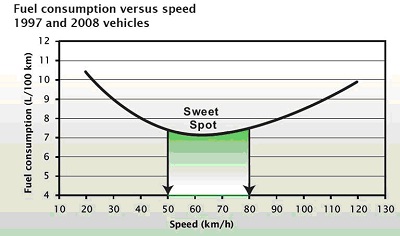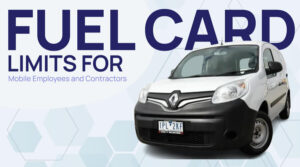A 2016 study found the average Sydney household spends an average of $22,000 per year to keep their cars on the roads.
Fuel pricing, tolls, rego costs, insurance and regular services for your vehicle can add up fast.
1. Don’t Speed.
You might think this is an obvious one… But it’s been found that a significant number of Australian drivers don’t know how much speeding can impact fuel consumption. It was found that cars generally use 20% MORE fuel when driving at 120km/h, compared with driving at 100km/h.

Though slamming your foot down at the traffic lights may be fun, it’s been found that fast acceleration and hard braking can chew through fuel 40% faster than when driving at a consistent speed.
Avoiding speeding and finding your vehicle’s ‘sweet spot’ will mean you’ll save both fuel and money. You’ll not only reduce your CO2 emissions but will also evade those pesky (and expensive) speeding fines.
2. Drive at a steady pace!
As we learnt above, fast acceleration and hard braking are the enemies of efficient driving. To maximise your fuel efficiency, driving at a smooth consistent speed is essential. Using cruise control whenever possible can be a huge help in maintaining a consistent speed. It was found that driving habits affect fuel consumption by as much as 30%.
To put that in perspective: if you spend about $70 per week on fuel, you can save (or lose!) up to $20 worth of petrol based purely on the way you drive.
If you live in Australia, you know the feeling of being tailgated. It’s not only SUPER frustrating but can also be dangerous, resulting in less time to brake in the case of an emergency. If you regularly drive too close to other cars, here’s a deterrent for you:
Tailgating decreases fuel efficiency as a side effect of hard braking.
This not only costs you money due to wasted fuel, but can also wear your vehicle and cause damage to your brakes in the long run.
3. Avoid aircon when travelling at low speeds.
It’s a commonly known fact that air conditioner chews through fuel. What isn’t well known however, is that the amount of fuel consumed, directly correlates to the speed that you’re driving.
Cruising around town at low speeds with the air conditioner on can easily add 5-7% to your weekly fuel costs. This changes when travelling at higher speeds, where the effects of aircon on fuel consumption are far less noticeable.

A few ways to reduce the cost of your car’s aircon include:
- Turn the aircon off and open your windows! The cool wind from outside can be super effective in cooling the car interior.
- Switch to recirculation mode! By recycling the heated or cooled air already in the vehicle, the aircon doesn’t have to use excessive energy to cool (or heat) air from outside the vehicle.
- Park your car in the shade. This may seem obvious, but by parking your car in the shade, you can dramatically reduce the cooling needed when starting up your vehicle.
4. Check tyre pressure once a month.
A RAC report found that you can save up to 2% on fuel costs by simply checking your tyre pressure monthly. Tyres naturally leak air over time, which can be exacerbated by use. By simply ensuring your car tyres are always pumped up, you can keep a few extra dollars in your pocket.
Plus, driving with correctly inflated tyres is significantly safer. Dozens of drivers die every year due to poorly inflated tyres. Taking a few minutes once a month to check your tyre pressure is worth the effort.
While it’s important to check the tyre pressure monthly, it is also vital to keep your car properly maintained to ensure maximum fuel efficiency. This means keeping up with regular services and monitoring your suspension and chassis alignment.
BONUS TIP: Improve a tank’s mileage by using the manufacturer’s recommended engine oil.
5. Minimise Idling
A HUGELY effective way to reduce your fuel usage is to simply avoid idling altogether. It’s a common misconception that it’s cheaper to idle than restart your vehicle. However, this is not the case with modern cars. Modern cars consume far less fuel when turning on than when being left to idle. Idling uses between 2-4 litres of fuel per hour. Not only does this waste fuel, but it also releases damaging CO2 emissions into the atmosphere.
Another common belief is that cars must be ‘warmed up’ before hitting the road. In reality, modern cars only need about 20 seconds to build up oil pressure before being ready to drive. The best way to warm the engine is by actually driving it!

Another great way of reducing your fuel consumption is by planning your driving routes. Take several shorter trips to save TWICE as much fuel as one long trip.
By planning routes beforehand you can also avoid traffic jams, which can seriously impact fuel consumption. The amount of idling, accelerating and braking happening in a traffic jam can rapidly chew through fuel.
To sum things up…
These are just a few techniques of many to reduce the fuel consumption of your vehicle. Consciously making an effort to drive more efficiently, keeping your vehicle maintained and minimising unnecessary idling can all help in saving thousands of dollars each year. Feel free to comment below and let me know your fuel saving tips!


